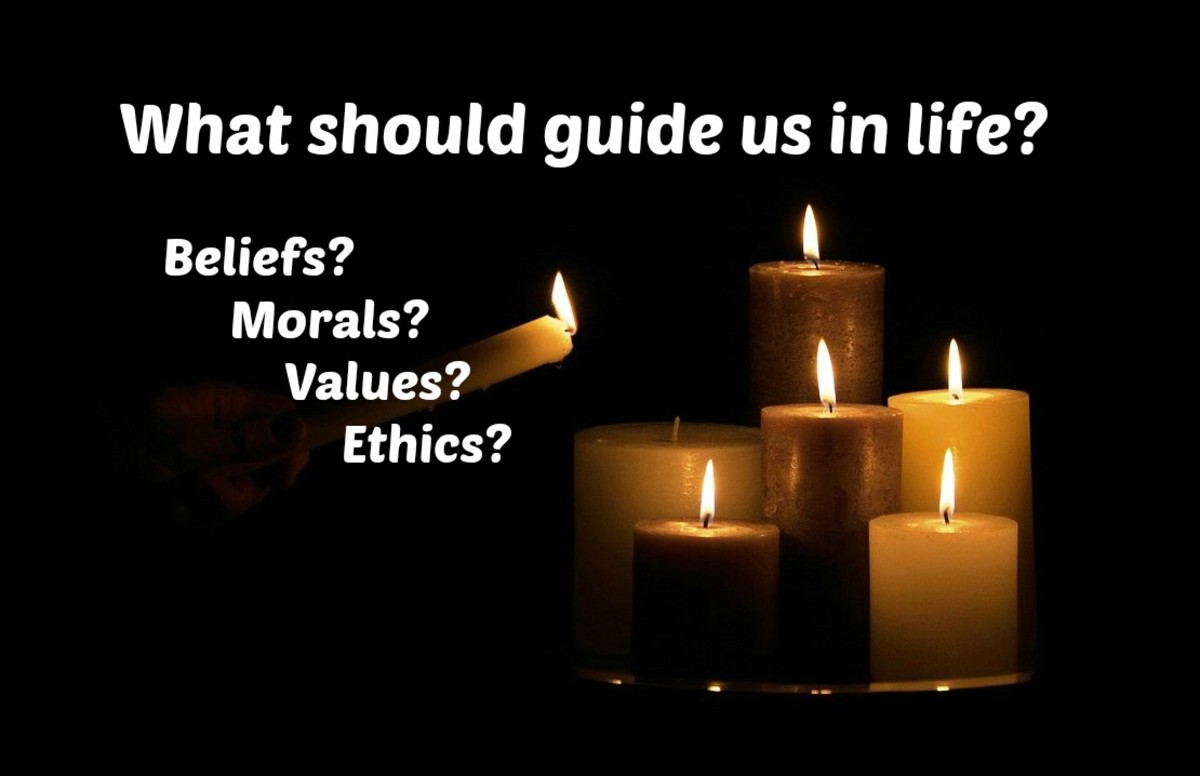C. S. Lewis' Defense of Traditional Ethics
- The Difference Between Modern and Traditional Ethical Thinking
A discussion of the differences between traditional ethical thinking and modern ethical thinking. - C.S. Lewis Classics ::: Homepage
A site dedicated to Lewis' support supported by HarperCollins. - Mere Christianity by C S Lewis.. A book review
A review of Mere Christianity - The Reluctant Convert -C.S. Lewis- He Makes Me Think
More info on Lewis' life and work. - "Perelandra" (Space Trilogy) - C.S. Lewis' Masterpiece of Science Fiction
A hub discussing Lewis' science fiction classic Space Trilogy.
Ever since the 14th Century views about what constitutes a good human life have been changing. These changes really started to achieve dominance in the 17th Century and are now firmly rooted in our contemporary culture. One key feature of these changes is the transition from the idea that there is fixed human nature placed in us by God to the idea that humans are free to pursue their own ends independent of any divine authority. This notion of unrestricted freedom is the hallmark of the modern age. The only limit to this freedom is the violation of another's rights. Ethical norms are reduced to a set of prohibitions that cannot be violated without hurting another person. There is no positive vision of a flourishing human life.
Traditional ethical thinking sees true freedom as dependent on self-control. One is only free to play Mozart's piano concerto's if one has the self-control and discipline to practice. In the same way, one is only free to live a flourishing human life if one has the discipline to practice the virtues required to fulfill our human nature. Traditional ethical thinking has a positive vision of what it means to be human.
In order to defend traditional ethical thinking, C. S. Lewis, the 20th Century Christian apologist offers an illustration in his classic Mere Christianity. He asks us to imagine what it takes to keep a navy going. There are at least three different aspects of running the navy. The first concerns how to keep a ship in proper working order. This involves cleaning, maintenance and repair. The second aspect concerns sailing with other ships. These are rules that tell the sailors how to interact with others ships, which ship has the right of way, when to yield and how to approach other ships. Finally, there is the overall mission of the fleet. This tells the sailors what the goal of the entire naval fleet is and how to work together to achieve it.
Lewis thinks that the first aspect of caring for the individual ship is like the life of virtue. Virtues keep the human soul in tip-top shape. He thinks that second aspect is like the moral law which tells us how to interact with others. Finally, he thinks that the third level is like politics which tells us what our purpose is. Traditional ethics involves all three of these components: the life of virtue, the moral law and a vision of a flourishing human life which is publicly available in the political community.
Modern ethics, Lewis complains, eliminates two of the three aspects of traditional morality. Modern ethics is only concerned with the moral law so that people do not hurt each other and is suspicious of individual virtues as well as a politics that has as its goal anything more than preventing people from hurting each other.
According to Lewis, traditional ethics helps the human community to be like a well run navy. People will know how to take care of themselves, will work well with others and will have a common purpose. Lewis asks us to imagine a navy where no one was required to take care of their ship if they did not want to and where the ships had no common mission. It would be like bunch of rundown ships meandering around without a purpose. The ships would not interfere with each other but they would not get anywhere. They would not be a fleet or a navy. This is what Lewis thinks that the human community will be like under modern ethics.
As we look at the modern society that we live in each day, we have to wonder if Lewis is right. Are we like a bunch of run down ships with no overall mission? If so, is this the best way to live as humans? Would it be better if humans could develop some shared notion of the good - without being oppressive and imposing this good on all people - that would guide the human community toward a higher purpose? Lewis suggests that resurrecting more traditional ethical thinking will save true human culture.
References: Lewis, C. S. Mere Christianity. HarperSanFransciso. 2001.








